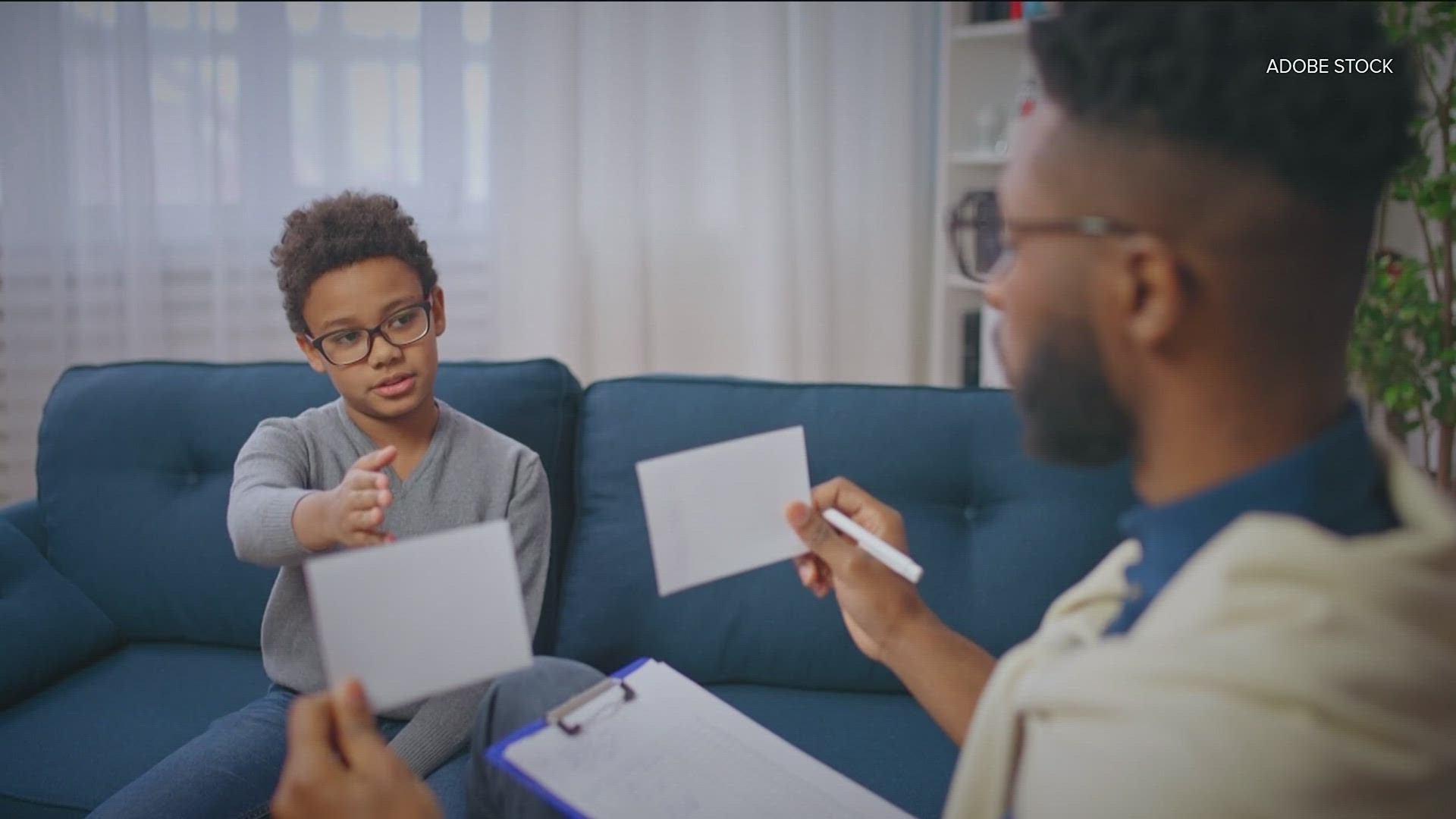ATLANTA — It's National School Psychologist Week, and as schools across the country work to support students' mental health better, there's also a struggle when it comes to finding specialists to meet that need.
While the shortage of school psychologists was an issue prior to the pandemic, national experts tell 11Alive the shortage is now critical due in part to the limited number of professionals and the availability of graduate programs needed to train students in the field.
For Jaceta Fevrier, changing the trend starts with awareness.
"Children are learning how to be people," Fevrier, Atlanta Public Schools Psychologist of the Year, shared. "They have a good foundation at home, and then when they come to us, we get to teach them how to handle their emotions, how to deal with frustration, how to handle failure. And sometimes school is really hard."
Fevrier, who calls herself a 'learning detective,' works with students at Bolton Academy and within the district's North Atlanta cluster. Her days are spent helping students find their strengths and navigate struggles while also meeting routinely with teachers, administrators and caregivers.
Her training also helps her dig deeper, providing evaluations and clinical assessments to determine what other factors may be impacting a child.
"When children are struggling, and we've tried everything that we can to try to support them, whether that be through behavior supports wraparound services or academic interventions, " Fevrier said, "If they still continue to struggle, there may be something underlying."
It's that type of critical support that parent Ashley Belton sought out for her boys.
"This was something that we had been looking into since our first son was diagnosed autistic at the age of four," Belton said. "I kind of dove into doing my own research, and so coming into Bolton, we were able to kind of build on the knowledge that I had prior to sending our children there, and they have just been impeccable in just giving us resources and putting everything to where we're able to better educate our children."
But right now, there are not enough psychologists like Fevrier to meet the need.
“There is a critical shortage in school psychology, both in terms of practitioners and in the availability of graduate education programs and faculty needed to train the workforce necessary to meet the needs of our student population," a spokesperson for the National Association of School Psychologists shared. "Much like their impact, the causes of these shortages are multiple and varied, ranging from lack of funding for positions within districts to meet the needs of students to poor retention due to limitations of the scope of service delivery that school psychologists can provide as a result of poor student to school psychologist ratios."
According to the latest state data compiled by the NASP, Georgia has a state ratio of 1 psychologist per 2,137 students. The association recommends a ratio of 1:500.
Data provided by Atlanta Public Schools shows the effort to improve such ratios in recent years.
"Since 2020, APS has steadily worked to increase the number of school psychologists in the district to 37 and is actively working to increase that number to 45," a statement from APS reads. "This has reduced the district's psychologist-to-student ratio from 1:2,059 to 1:1,350."
Amid the growing conversation centered on students' mental health, lawmakers, including U.S. Senator Raphael Warnock, push for more support. Earlier this year, Warnock introduced the ASSIST Act, legislation intended to help schools hire and keep more mental health professionals through grant funding.
While the bill is still in committee, Fevrier and others work to raise awareness for a role she said can sometimes be overlooked.
"Thankfully, school psychologists are not the only members of the team who support students' mental health and behavioral development," Fevrier adds. "We have school social workers, we have school counselors, and then we have other professionals that are in the schools to help support that. But the need is great."

